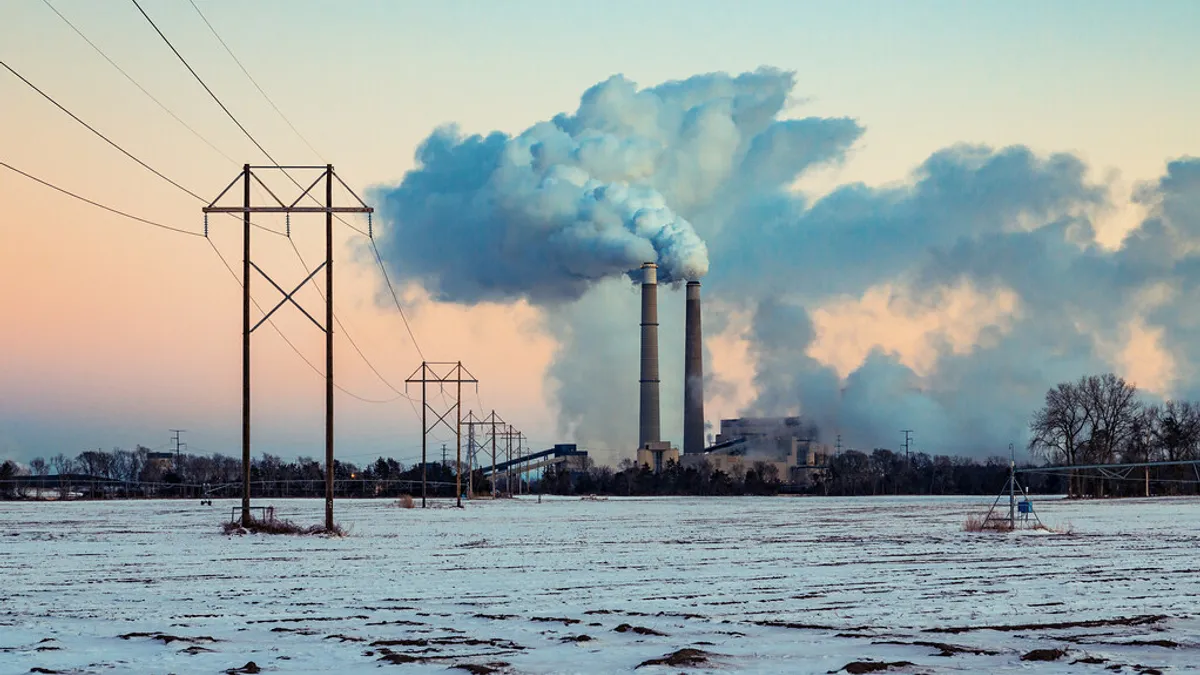Dive Brief:
-
Minnesota regulators on Wednesday approved Xcel Energy's December request to operate its last two coal plants in the state seasonally.
-
The Allen S. King plant and unit 2 of the Sherco facility will now sit idle six months out of the year, according to the Minnesota Public Utilities Commission (PUC). From June to August and December to February, the utility can operate the plants, unless they are otherwise needed for reliability needs. Xcel's move is expected to save customers millions in dollars and in tons of carbon dioxide annually.
- A June report from Union of Concerned Scientists (UCS) found the utility operated its plants at a $55 million loss in 2018. Xcel disputes the study, saying that because its plants were are "long duration" they could not be shut off and on quickly, making it difficult to offer those units into the day-ahead market.
Dive Insight:
Utilities are coming under increasing scrutiny from state regulators in how they operate their coal-fired plants, as research from UCS and Sierra Club finds some coal-fired plants are operating at a loss for large portions of the year.
Xcel requested the operations change in November of last year after state regulators opened a docket to examine the issue more closely. Minnesota was the first state in the country to do so and has been followed by Missouri and Indiana.
Ultimately, Xcel estimates it will save customers approximately $1.5 million in 2020 and up to $3.5 million by 2023. The plan would also reduce greenhouse gas emissions by up to 4.1 million tons in 2020 and up to 7.3 million tons by 2023, relative to the full dispatch operations. Minnesota law requires utilities in the state to reduce emissions 30% below 2005 level emissions by 2025, and this move alone will make up one-fifth of the reductions needed, according to the PUC.
"This is an important proposal and I appreciate Xcel Energy bringing it forward," Commissioner Matt Schuerger said in a statement. "I think this highlights Xcel's focus on saving their customers money, on meeting Minnesota's environmental policies, and in being responsive to the investigation the Commission opened."
Lead author of the UCS report Joe Daniel called the move "a welcome change in behavior."
"Xcel, like most utilities, was initially reluctant to recognize the costliness of uneconomic self-commitment. But now, both the utility and the state commission have codified a path forward that will save Xcel's customers millions of dollars, not to mention the public health benefits of reduced pollution," Daniel said in a statement. "Unfortunately, other utilities in Minnesota remain reticent when it comes to changing their operations."
Xcel CEO Ben Fowke has indicated he'd be interested in exploring operation changes across the utility's system, which stretches from Minnesota down to the southeast, to reduce the amount of time it operates its coal plants.
"We're definitely looking at that down in the [Southwest] region. We've got some water issues that we need to address, and that could be solved with some seasonal dispatch," he said in February.















